Meet the operations director: Guy Riggott
The operations director at multi-course operator BGL explains why sustainability makes good business sense.
BGL (Burhill Group Limited) is a major multi-course operator in the UK, with 10 golf venues dotted around England. Over the past few years, the group has continued to invest in its properties to further enhance the golf offering for members and visitors. By growing a business, more emissions are naturally created, but it doesn’t necessarily mean you have to become less green. Economic success actually enables BGL to do more sustainability work, and reinvesting in operations is a great way to conserve the business in the long-term. In short, sustainability makes good business sense.
The company’s commitment to the environment and sustainability reaches back decades, and includes the accolade of being the first golf group to successfully achieve the Golf Environment Organisation (GEO) certification across the board in 2016.
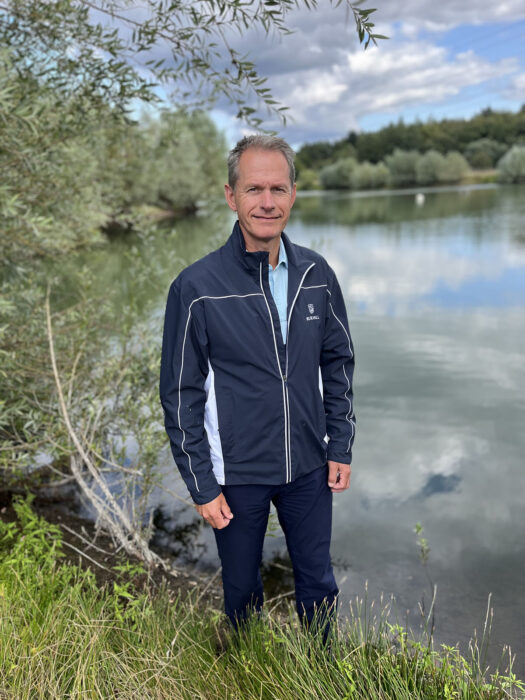
Guy Riggott
Going forward, sustainability for BGL will follow an evolving data-informed path, better allowing the group to reduce its ratio of emissions through technology upgrades whilst strengthening behavioural change from its stakeholder value chain – upstream from suppliers and downstream from customers and the growing workforce.
We spoke to BGL’s operations director for its golf division, Guy Riggott, to gain a greater understanding on the substantial work that the company is doing to operate in a more efficient and sustainable manner, broken down into a new seven-step commitment process that is being used across the group to keep pushing forward on the pursuit of reaching carbon net zero:
1. Planning, policies and procurement
a. Responsible procurement across the company’s supply chain and exceeding legislation
2. Staff and golfer engagement
a. Engage staff and customers to foster their understanding, support, action, and pride
3. Taking climate action
a. Minimise emissions across operations, maximising carbon storage across golfing landscapes
4. Conserving resources
a. To be efficient with clean and renewable energy; diversify water sources and minimise consumption; reduce single use materials and waste to landfill
5. Fostering nature
a. Protect and enhance habitats, biodiversity and ecosystem services, manage turf responsibly and avoid pollution risks
6. Strengthening communities
a. Provide health and wellbeing through accessible products, while continuing to outreach into communities as a force for good, driving behavioural change
7. Tracking and reporting
a. Track and analyse sustainability performance indicators to create annual facility and group wide reports and recommendations.
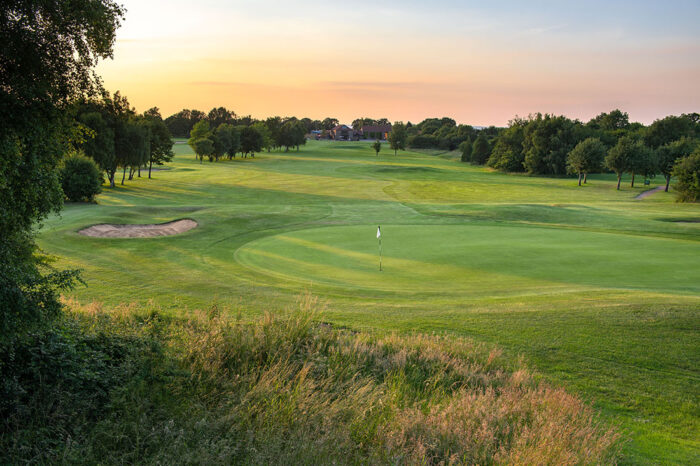
Thornbury Golf Centre. Image by Andy Hiseman
Here, Riggott explains how these seven commitments came about, and the foundations of BGL’s pursuit towards greater sustainability:
“It’s important to note that all businesses will have to follow the government’s roadmap towards greater sustainability over the next few years. So, we need to be in step with that, and ideally ahead of it. We don’t want to play catch up.
“Particularly in our industry, we feel that there is an expectation that a business like ours is in step with sustainability. We want, and need, to play our part as a leadership role in the golf industry, to show others that we are taking this seriously. Not only that, but we want to be recognised for actually getting it right. We’re setting our stall out and committing to it, and we think we can be a flag holder.
“Really, sustainability makes common sense. For example, spending money on building reservoirs across our sites will enable us to be completely sustainable in terms of water usage. So, we won’t need to use mains water across the board. We’ve actually only got one site left to complete a reservoir at, then we’ll be self-sufficient. That commitment makes total sense in protecting us commercially against prolonged periods of drought that could do serious harm to the business. And of course, there are increasing pressures on infrastructure for mains water, due to rising costs and the reduction in viability of using mains water. In terms of water retention, this also helps us with ever-changing legislation on pesticides and herbicides. Using less chemicals means we will have to increase water usage.
“Golfers are our customers, so we always have to consider their expectations. Everybody who plays golf would like their course to be in fantastic condition, 365 days per year. With drastically reduced chemical use, maintenance programmes have to change, and that will sometimes require reducing traffic on certain areas, so there is a lot to consider.”
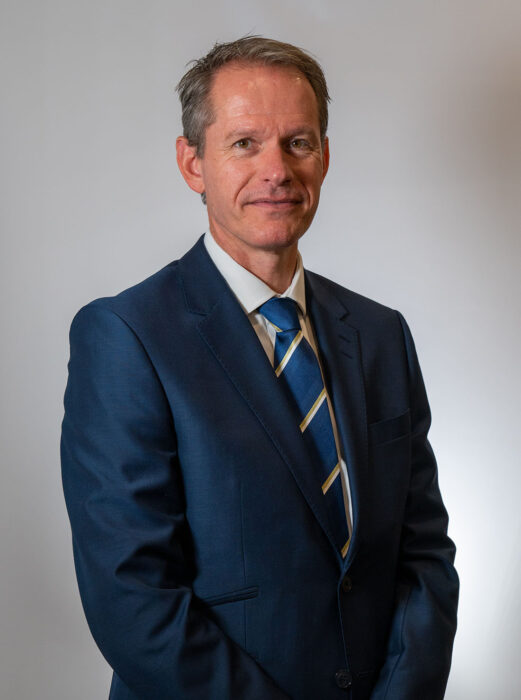
Speaking on the company’s emissions and electricity usage, Riggott added: “We’re really trying to ensure we just take green electricity into our clubhouses. We can do other things like switching to more efficient electric equipment. Then we’re looking at whether we can switch out gas appliances to become electric, or if we do need to use gas, whether we can make sure we are using green gas – and that means gas that comes from certified renewable sources.
“Something that is a little trickier for us to manage relates to the third of our commitments. If we want to minimise emissions across our operations, we also have to consider all of our suppliers. Trucks that deliver products to us are usually run by diesel and will travel thousands and thousands of miles each year. So, we’ve got to try to understand what the carbon cost is for us to make those journeys. That’s something we’ll be working with our suppliers on in the next couple of years, and really trying to get our messaging across to them.
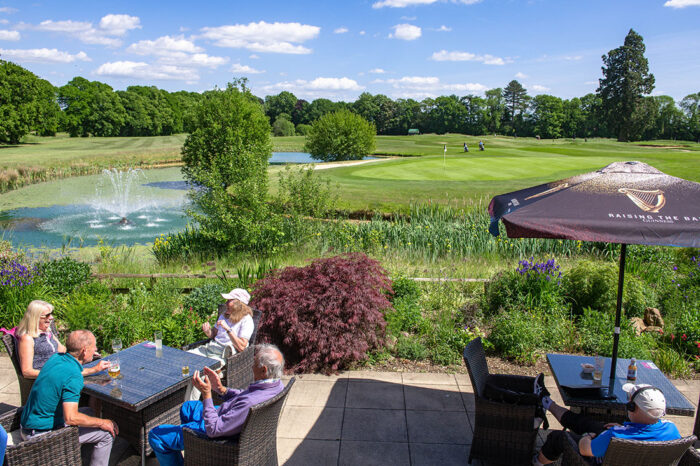
Aldwickbury Park Golf Club. Image by Andy Hiseman
“Where possible, we’re also trying to make a more conscious effort to make smart decisions in where our food and products are sourced from, in order to minimise that travel, along with environmental impacts of manufacture and disposal. We have to ask ourselves, where is it from? And how long will this product last? Some things, such as maintenance equipment, may need to come from overseas, but where possible we’ll be reducing the distances our supplies travel to get to us.
“We’re constantly exploring different ways to manage our waste better too. We want to ensure that we’re always separating food waste, and 100 percent doing our best to avoid it going to landfill. It’s really our responsibility as a business to ensure that waste on our properties is dealt with in the most sustainable way. And we should not shy away from that. That is something that we can make strides in.”
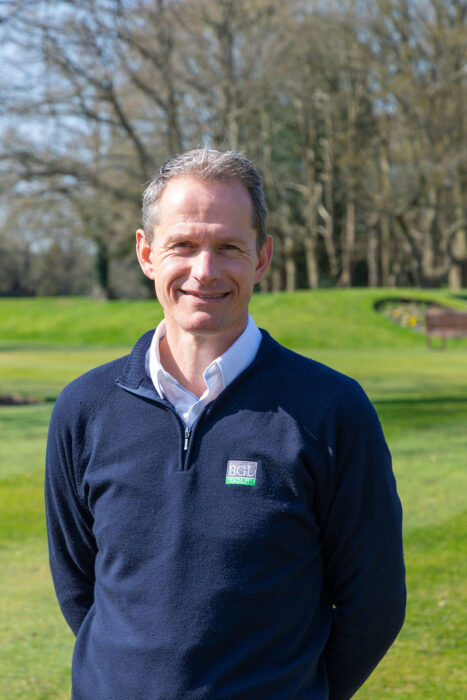
When discussing the fifth commitment listed above, Riggott added: “In recent years, several of the BGL venues have entered the STRI Environmental Awards, with Hoebridge Golf Centre, Redbourn Golf Club and Aldwickbury Park Golf Club all receiving special commendation awards for their efforts in managing their sites in a sustainable manner. The awards recognise those who are benefiting the wildlife of their sites, whilst also minimising their impacts.
“Burhill Golf Club also entered, and was successful in winning a regional award for the south east for their work on re-generating heather on the Old Course, in addition to establishing a bird hide on-site, in close proximity to a large lake on the New Course. All BGL Golf sites have successfully undergone the GEO environmental accreditation programme.
“We recognise our responsibility to foster nature on our golf courses and a key part of that is reducing the management of areas that are not in play, to allow natural processes to take place and enhance the habitats available.”
The final commitment listed above is tracking and reporting. “We’re actually looking at recruitment options right now to bring somebody in to solely focus on sustainability as a project. As you can imagine, in a business the size of ours, there is a lot of data checking and number crunching to be done. So, having that person there will enable us to continue staying accountable.”
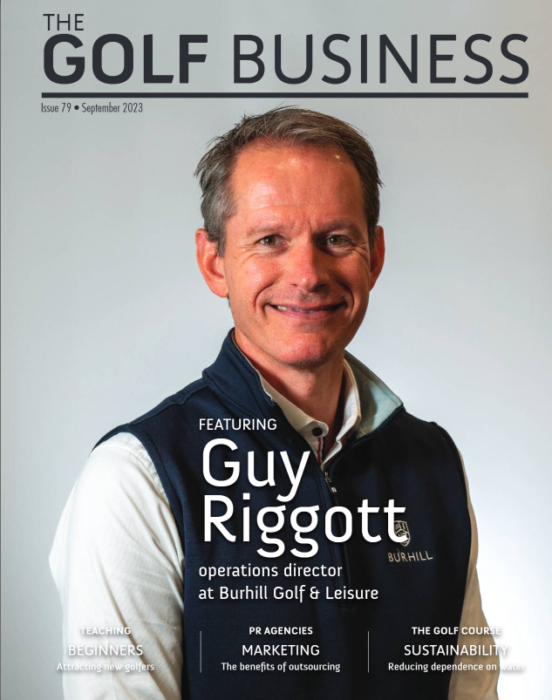
He concluded: “It’s worth emphasising that we are very cautious about stating anything that we can’t back up. That’s why we’ve created these commitments and this process. This is not a marketing exercise for us. Really, it is good business. We are custodians of land and businesses, and we have to try to do the right thing. We’re marrying good business decisions with our pursuit towards sustainability, and we’ll continue to do so, as we strive to achieve net zero.”















Let me tell You a sad story ! There are no comments yet, but You can be first one to comment this article.
Write a comment